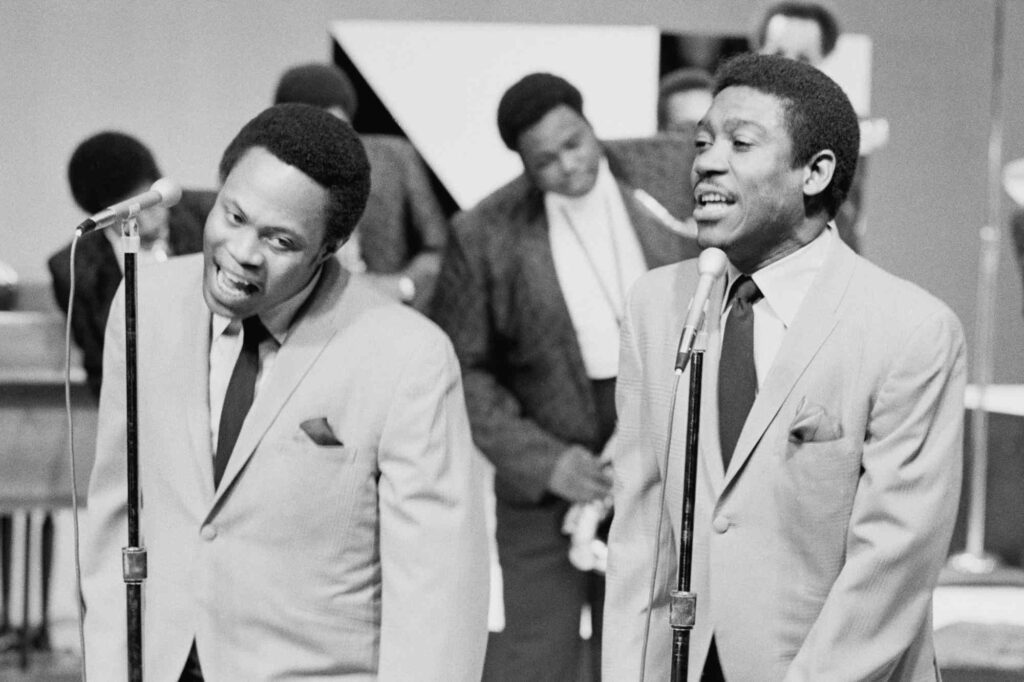Miami’s history has always overlooked the African American neighborhood of Overtown. The few pages dedicated to it often highlight the infamous riots, particularly the Arthur McDuffie case, due to its impact on the media. However, between the 1930s and 1950s, Overtown enjoyed such a golden age that its main artery, 2nd Avenue, was known as Little Broadway. The stages of its theaters, nightclubs, and cabarets became a musical mecca where legends like Ella Fitzgerald, Louis Armstrong, Nat King Cole, and great Soul voices performed—among them, perhaps the most remembered are the duo Sam & Dave, with the recently deceased, Sam Moore being a Miami native.
During this vibrant era, World War II was fought, and Florida greatly benefited from its aftermath. The movement of troops, who used the state as a staging area, sparked significant economic growth, drawing people from across the country to this southernmost tip in search of better opportunities. Among them was Henry Stone—born Henry Epstein—a musician who arrived in 1948. Stone had served in the military in an unusual way: playing the trumpet before troops went on missions. He first landed in Jacksonville, where he started selling vinyl records. The public demand for records caught his attention, and his fascination grew as he discovered Florida’s rich, largely unknown music scene. Names like Ray Charles, Chubby Checker, and Hank Ballard headlined weekend concert flyers.
After a few months in Jacksonville, Stone moved to Miami, where he lived until his death in 2014. If the musical atmosphere in Jacksonville had impressed him, Miami confirmed it was one of the richest and most exotic places for Soul and R&B rhythms, particularly due to its Caribbean influences, especially from the Bahamas. Fully diving into the music industry, Stone became a producer, distributor, and owner of record labels. He began in a small space on Flagler Avenue, where Ray Charles recorded, later moving to Hialeah, where the legendary “The Twist” by Hank Ballard was recorded—before Chubby Checker made it famous—as well as songs by James Brown and Betty Wright.
Stone’s top moment in Miami came during the 1970s when his Hialeah studio, TK Records, rose to become the world’s largest independent Soul and R&B label. It was here that Harry Wayne Casey (KC), a music student at Miami Dade College, began experimenting with instruments while assisting with administrative tasks and inventory. This led to the formation of the iconic KC and the Sunshine Band. Casey drew inspiration from the classic Soul music he grew up with—much of it from local artists like Sam & Dave—infusing it with the vibrant rhythms of Bahamian Junkanoo carnivals.
With Henry Stone’s signature production touch, this blend evolved into a unique fusion of Soul and Disco. The band debuted in 1973 with the hit “Blow Your Whistle,” quickly conquering U.S. radio stations. KC and the Sunshine Band distinguished themselves as a groundbreaking group of their era: interracial, featuring both Anglo and African American members. Their hits— “That’s the Way (I Like It),” “Please Don’t Go,” and “(Shake, Shake, Shake) Shake Your Booty”—topped the Billboard charts in the U.S. and Europe, leaving a legacy that continues to resonate through our speakers today.

